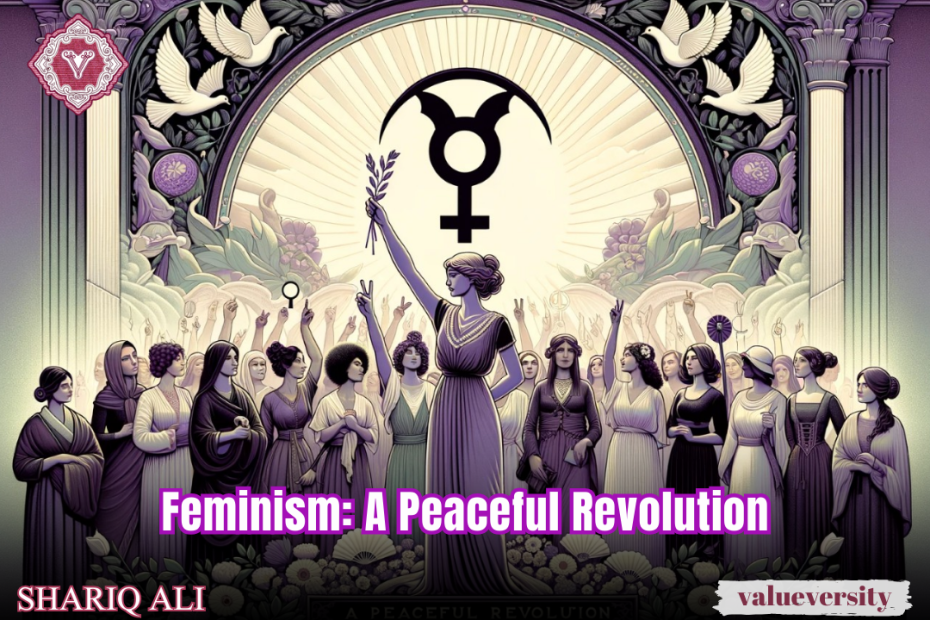Introduction
Feminism, a social and political movement advocating for gender equality and women’s empowerment, has evolved throughout history, bringing about significant changes to create a more equitable world. This article explores the roots of feminism, its transformation into an inclusive movement, and the peaceful approach it employs to foster positive change in society.
The Roots of Feminism: Challenging Traditional Gender Norms
In the late 19th and early 20th centuries, the seeds of feminism were sown as women began challenging traditional gender roles and demanding suffrage and equal rights. The early feminists paved the way for future generations, setting the stage for a movement that would grow in scope and impact.
Diversity and Inclusion: Embracing Perspectives from All Backgrounds
As feminism progressed, it evolved into a diverse and inclusive movement, encompassing the concerns and experiences of women from various cultural, racial, and socioeconomic backgrounds. This inclusivity strengthened the movement and enabled it to address a broader range of issues faced by women worldwide.
Influential Figures and Literary Works: Driving the Feminist Cause
Numerous influential figures have played crucial roles in championing the feminist cause. From Mary Wollstonecraft to Susan B. Anthony and Simone de Beauvoir, their contributions have been instrumental in shaping feminist ideologies. Additionally, literary works like Virginia Woolf’s “A Room of One’s Own” and Chimamanda Ngozi Adichie’s “We Should All Be Feminists” have furthered the understanding and importance of feminism in society.
Feminism’s Peaceful Approach: Dialogue, Education, and Advocacy
What sets feminism apart from other revolutions is its commitment to a peaceful and non-violent approach. Instead of resorting to bloodshed and conflict, feminists have focused on dialogue, education, and advocacy to bring about lasting change. By raising awareness about gender disparities, promoting education, and empowering women economically, feminism has contributed to the development of fairer and more inclusive societies.
The Contrast with Violent Revolutions: Uniting People for Common Goals
Comparatively, other revolutions, such as communist uprisings, have often led to violence, destruction, and prolonged conflicts. In stark contrast, feminism aims to unite people, regardless of gender, and work towards common goals that benefit society as a whole. This approach fosters a sense of collective responsibility and ownership in the pursuit of gender equality.
Ongoing Challenges: The Fight for Gender Equality Continues
Despite the progress made, feminism still faces several challenges in its quest for gender equality. Issues like the gender pay gap, underrepresentation of women in leadership positions, and violence against women persist in various parts of the world. However, the resilience of the feminist movement and the growing awareness of these issues offer hope for a brighter future.
Conclusion: Embracing a Peaceful Revolution
In conclusion, feminism has been a peaceful revolution, advocating for gender equality and empowering women in diverse societies. From its early roots of challenging traditional gender norms to becoming an inclusive movement that values diverse perspectives, feminism has continuously evolved to meet the changing times. By emphasizing dialogue, education, and advocacy, feminists have demonstrated the power of a peaceful approach in effecting positive and lasting change. Although challenges remain, the progress achieved so far and the increasing awareness of gender disparities provide hope for a more equitable and just future. As we move forward, embracing feminism’s peaceful revolution can pave the way for a world where all individuals can thrive and contribute to the betterment of society, regardless of their gender.
By Shariq Ali
